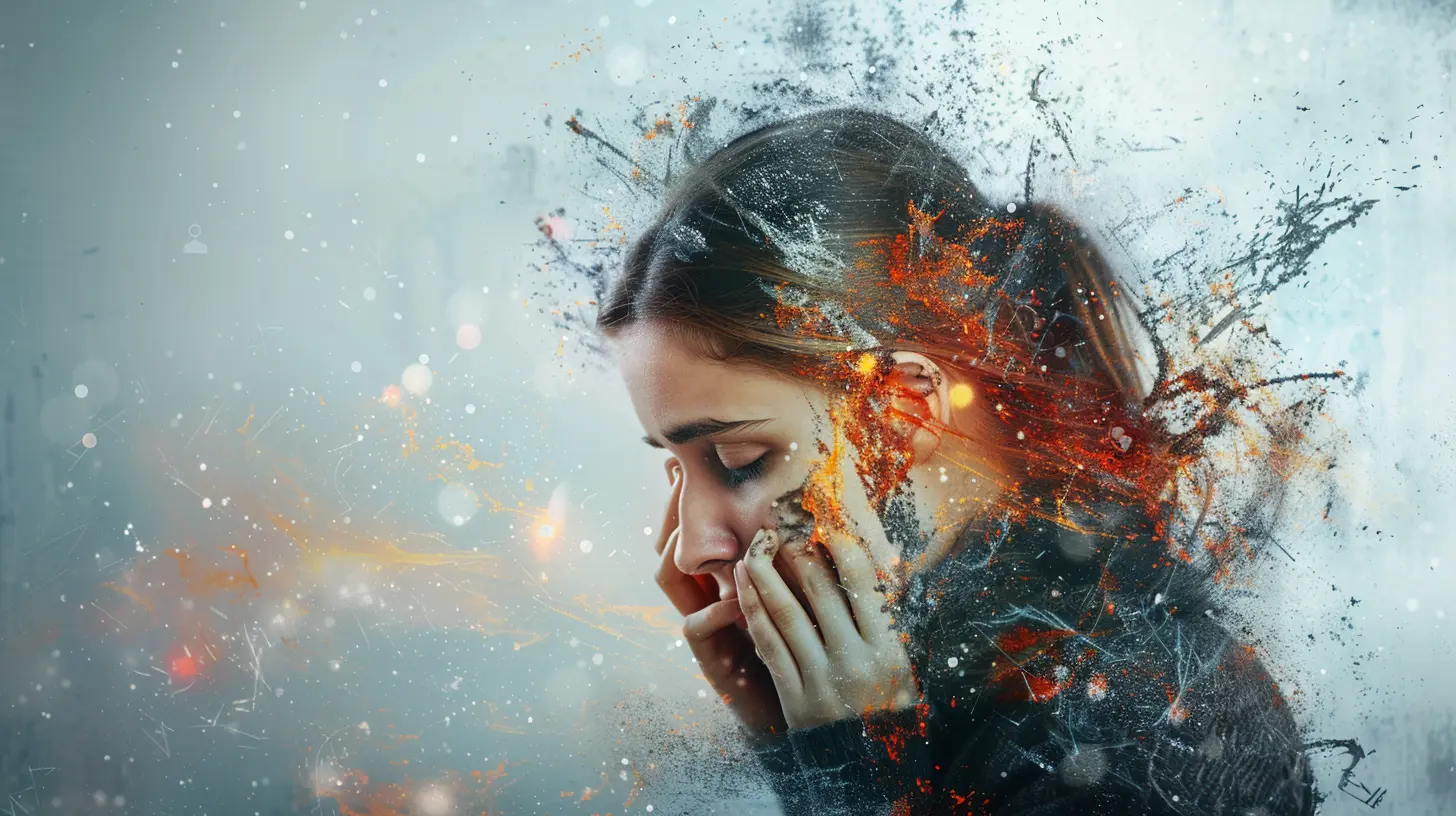Trauma in the Digital Age: The Impact of Social Media Exposure
23 July 2025
In today's world, the internet and social media are part of our daily routine. We scroll, like, share, and comment without much thought. But have you ever paused to think about how all this scrolling affects your mental and emotional well-being? Especially when what you see is shocking, distressing, or unsettling?
With platforms like Instagram, Twitter (or should we call it X?), TikTok, and Facebook constantly updating with content—good, bad, and downright horrifying—there's a growing concern about trauma in the digital age. Social media exposure can deeply impact our mental health, and it’s worth exploring exactly how.

What Is Trauma?
Let's start by breaking it down. Trauma isn’t just a buzzword; it's a profound emotional and psychological response to distressing or disturbing events. Physical accidents, violence, natural disasters, or significant losses commonly come to mind when thinking of trauma. But here's something to think about: can a person become traumatized by just watching content online? The answer is yes.Digital trauma is real, and the constant, repetitive exposure to negative or distressing content can slowly, but surely, chip away at your emotional resilience.
Vicarious Trauma: Feeling the Pain Without Directly Suffering
Ever heard the saying, "misery loves company"? Well, social media takes that to another level. We aren’t just sharing pictures of pets and brunch anymore; we’re sharing the raw, often painful realities of life. War footage, police brutality, natural disasters, and personal tragedies flood our feeds. Even if you aren't directly involved in these events, you're absorbing them.This is called vicarious trauma or secondary trauma. It occurs when you experience trauma indirectly by witnessing others’ pain and suffering through various mediums, including social media. Constant exposure to such content can leave you feeling anxious, sad, and emotionally drained.
But how often do we stop to think, "Maybe it's time to log off"?

The Allure of Doomscrolling: Why We Can't Look Away
In the heat of a global pandemic or during times of political unrest, you may have found yourself glued to your screen, endlessly scrolling through posts and updates. Psychologists have coined a term for this behavior: doomscrolling. It’s the compulsion to continually check news feeds, even when the content makes you sad or anxious.But why do we do this to ourselves?
Our brains are wired to survive, and from an evolutionary perspective, we’re drawn to negativity because it helps us stay alert to potential dangers. That’s why negative news often sticks with us more than the positive. In some ways, we're tricking ourselves into thinking we’re staying informed and prepared for threats, but in reality, we’re just overwhelming our mental capacity. It’s a never-ending loop of fear and anxiety, making us feel worse instead of better.
The Algorithm: Feeding Human Fear for Profit
Here's the kicker: social media algorithms are designed to keep us engaged. Those clever codes in the background notice what captures your attention, what makes you hesitate before scrolling past. So when you click on one traumatic post or news update, the algorithm serves you more of the same. It’s like falling down a rabbit hole, but at the bottom, you don’t find wonderland—you find a flood of anxiety-inducing content.It gets even more twisted when you realize that, while you're doomscrolling and dealing with emotional fallout, these platforms are making money off your attention. So not only are our modern-day survival instincts hijacked, but they’re also being monetized.

The Psychological Impacts of Constant Social Media Exposure
When we consistently expose ourselves to emotionally distressing media, it's bound to affect our mental health. But just how bad can it get?Anxiety and Depression
It’s no surprise that social media exposure has been linked to increased levels of anxiety and depression. Remember, many social platforms idealize lives, presenting only the good parts—leading us to compare ourselves to unrealistic standards. Add the traumatic content to that mix, and you've got a cocktail that sets off every “fight or flight” response in your system.For some, social media offers an escape. For others, it becomes a source of mental torment. You can start feeling weighed down by the sheer volume of negative stories, whether it's from global news or personal tragedies shared by your friends.
Desensitization
Another impact is desensitization, where repeated exposure to distressing content makes us feel less affected over time. At first, seeing videos of violence or a natural disaster might provoke strong emotional reactions—fear, sadness, or sympathy. However, after continuous exposure, you might find yourself scrolling past similar posts, barely fazed. It’s a form of emotional numbing, but it’s not a good thing. It can diminish your ability to empathize with others and make you feel disconnected.PTSD and Other Disorders
For some people, social media exposure can even lead to post-traumatic stress disorder (PTSD). You don't have to be physically present in a traumatic situation to experience PTSD. Consistently watching traumatic events unfold in real-time via your screen can trigger symptoms that include flashbacks, nightmares, and severe anxiety.Now think about it—if you're glued to these platforms for hours every day, consuming traumatic content, it’s not just a passing bad mood you’re dealing with. Over time, that accumulation of distress can lead to more severe mental health issues like PTSD, panic disorders, or chronic anxiety.

The Persona You Create vs. The Reality You Inhabit
An interesting facet of social media exposure isn't just its content but also the personas we create and the comparisons we make. How often have you scrolled through Instagram and thought, "Wow, why doesn't my life look like this?"?That's because what you see and what’s real are often two very different things. Social media encourages us to present idealized versions of ourselves—filtered photos, happy moments, and success stories. But this fosters an environment where we constantly compare ourselves to an unattainable standard, feeding feelings of inadequacy and stress.
And when you're already dealing with emotional strain from traumatic posts, the added stress of self-comparison can feel overwhelming. It’s like adding gasoline to a fire.
So, What Can We Do About It?
This might all sound pretty dire, but the first step to overcoming a problem is recognizing it. If you’re aware of how social media can affect you, you can start taking steps to protect your mental health. Let's look at some ways to manage trauma exposure on social media.Practice Digital Detoxing
Ever heard of a digital detox? It’s exactly what it sounds like—limiting your time online and taking breaks from your devices. Taking a step back from your phone allows you to reset emotionally and mentally. The world won’t end because you didn’t "like" 20 posts today.By consciously limiting your exposure to social media, you can reduce your chances of doomscrolling and consuming traumatic content. Apps like "Forest" or "Moment" can help manage screen time by setting limits on how much you use social platforms.
Curate Your Feed
Don’t underestimate the power of the “unfollow” or “mute” button! Curating your social media feed to include uplifting, educational, or lighter content can make a big difference in how you feel after a scroll session. It’s also important to unfollow or block sources of distressing content. Guarding your mental space is just as important as guarding your physical one.Try to follow accounts that make you feel good about yourself or inspire you in positive ways.
Reach Out for Help
If you feel that social media exposure is affecting your mental health, don't hesitate to reach out for professional help. A licensed therapist or counselor can help you work through feelings of anxiety, depression, or trauma that have built up over time. Therapy apps like BetterHelp or Talkspace make seeking help even more accessible.Engage in Grounding Activities
When you're feeling overwhelmed by what you've seen online, consider engaging in grounding activities. These can include deep-breathing exercises, meditation, or even a short walk. The point is to reconnect with the physical world around you, away from the onslaught of digital content. Grounding helps you regain emotional control and calm your mind.Start Conversations
One of the powerful things about social media is the ability to foster connections. Instead of just passively consuming distressing content, why not start conversations about it? Engage with your friends or community to discuss how these posts make you feel. Sometimes, just talking it out with others who feel the same can be immensely comforting.
Wrapping It Up
Social media isn’t likely going anywhere anytime soon, but that doesn’t mean we’re powerless in protecting ourselves from its negative effects. We must recognize that constant exposure to trauma, even in the form of online posts or videos, can profoundly affect our mental and emotional health.By taking mindful steps—like detoxing, curating your feed, and reaching out for support—you can mitigate some of the harm social media might cause. Remember, it’s all about balance. Social media can be a fantastic tool, but like anything, in excess, it can lead to unintended consequences.
The next time you're doomscrolling, ask yourself: Is this helping or harming me? Your mental health is always worth more than a few likes.
all images in this post were generated using AI tools
Category:
TraumaAuthor:

Janet Conrad
Discussion
rate this article
1 comments
Payton Watson
Scrolling through social media can feel like a rollercoaster ride! 🎢 Let’s chat about how those virtual highs and lows shape our mental health—buckle up!
August 12, 2025 at 3:13 PM

Janet Conrad
Absolutely! Social media's highs and lows can significantly affect our mental health, influencing emotions and perceptions. Let's dive into how these digital experiences shape our well-being.


